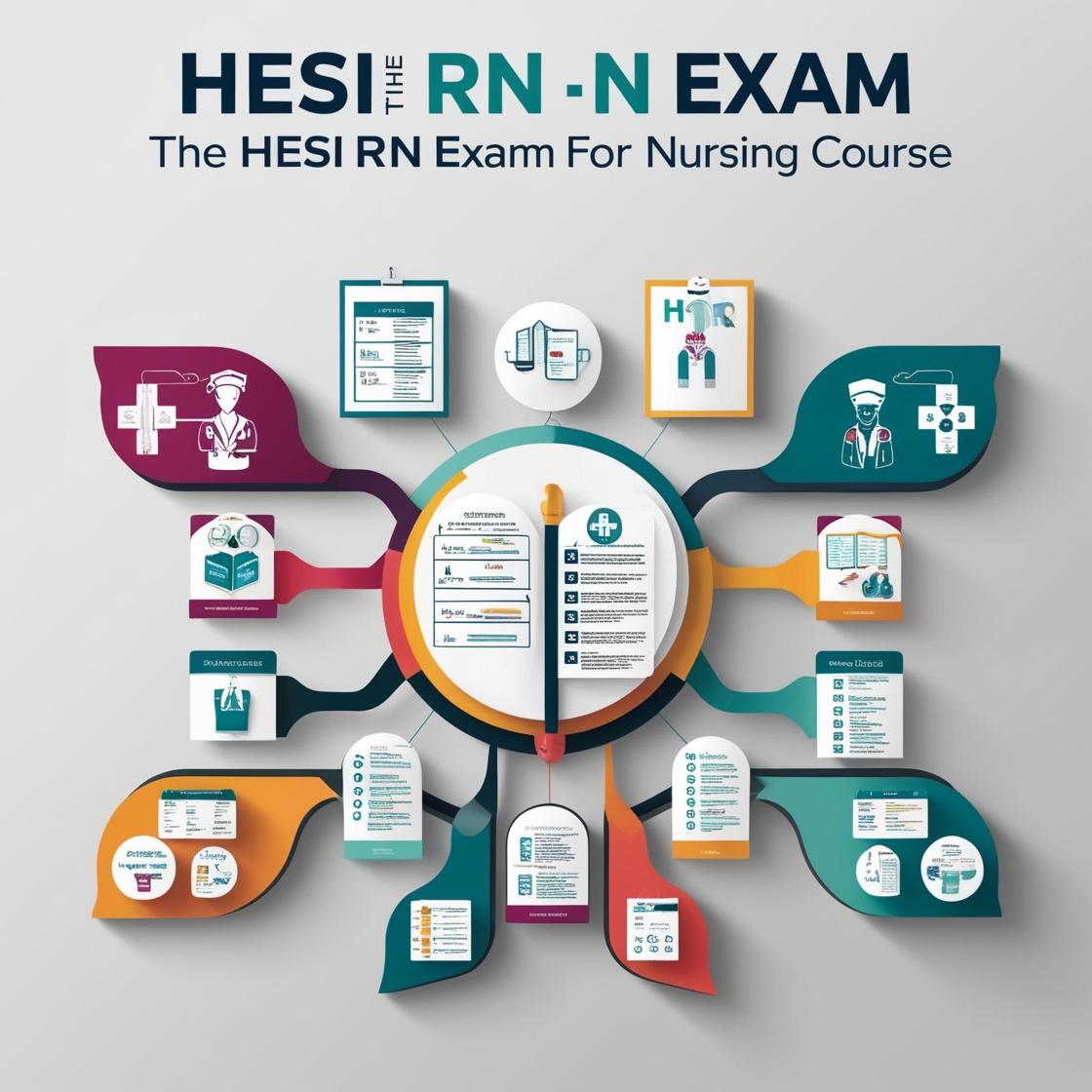HESI RN
HESI Exit Exam RN Capstone
1. A client with Type 2 diabetes is admitted with frequent hyperglycemic episodes and glycosylated hemoglobin (A1C) of 10%. What actions should the nurse include in the client's plan of care?
- A. Mixing glargine with aspart insulin to manage glucose levels.
- B. Teaching foot care to prevent injuries.
- C. Coordinating carbohydrate-controlled meals and subcutaneous injections.
- D. Reviewing site rotation for insulin injections.
Correct answer: C
Rationale: In managing a client with Type 2 diabetes experiencing frequent hyperglycemic episodes and with a high A1C level, it is crucial to coordinate carbohydrate-controlled meals and subcutaneous injections. This approach helps regulate blood glucose levels effectively. Mixing glargine with aspart insulin (Choice A) is not a recommended practice as these insulins have different onset and peak times. Teaching foot care (Choice B) is important in diabetes management but is not the priority in this scenario. Reviewing site rotation for insulin injections (Choice D) is important to prevent lipodystrophy but is not the immediate action needed to address the client's hyperglycemia and high A1C level.
2. A client is newly diagnosed with a duodenal ulcer. What information should the nurse provide during medication teaching?
- A. Take antacids regularly to manage symptoms.
- B. Avoid spicy foods and alcohol.
- C. Ensure proper administration of antibiotics.
- D. Stop all food intake until symptoms subside.
Correct answer: B
Rationale: The correct answer is B. Clients with duodenal ulcers should avoid spicy foods and alcohol as they can exacerbate symptoms and delay healing. Choice A is incorrect because while antacids may help with symptoms, they are not the primary focus of medication teaching for duodenal ulcers. Choice C is not directly related to medication teaching for duodenal ulcers unless antibiotics are specifically prescribed. Choice D is incorrect as stopping all food intake is not recommended and can lead to other complications.
3. A client with hypertension is prescribed a beta-blocker. What teaching should the nurse provide about this medication?
- A. Instruct the client to avoid high-potassium foods.
- B. Monitor the client’s heart rate and report any bradycardia.
- C. Advise the client to rise slowly from a sitting or lying position.
- D. Instruct the client to avoid sudden position changes.
Correct answer: C
Rationale: The correct answer is to advise the client to rise slowly from a sitting or lying position. Beta-blockers can cause bradycardia and hypotension, so clients should be advised to rise slowly to prevent dizziness and falls. Monitoring the client's heart rate and blood pressure regularly is essential. Instructing the client to avoid high-potassium foods (Choice A) is not directly related to beta-blockers. While monitoring the client's heart rate (Choice B) is important, advising the client to rise slowly (Choice C) is more directly related to potential side effects of beta-blockers. Instructing the client to avoid sudden position changes (Choice D) is not as specific or essential as advising them to rise slowly to prevent adverse effects.
4. The nurse is evaluating the laboratory reports of a client with hypothyroidism. The nurse would expect which of the following laboratory values?
- A. Increased TSH
- B. Increased thyroxine (T4)
- C. Decreased TSH
- D. Decreased T3
Correct answer: A
Rationale: The correct answer is A: Increased TSH. In hypothyroidism, the thyroid gland is underactive, leading to low levels of thyroid hormones. As a compensatory mechanism, the pituitary gland releases more thyroid-stimulating hormone (TSH) to try to stimulate the thyroid gland to produce more hormones. Therefore, increased TSH levels are expected in hypothyroidism. Choice B is incorrect because in hypothyroidism, thyroxine (T4) levels are usually decreased, not increased. Choice C is incorrect as hypothyroidism is characterized by increased TSH levels, not decreased. Choice D is also incorrect because in hypothyroidism, T3 levels may be decreased, but TSH is a more sensitive indicator for diagnosis.
5. A client with diabetes mellitus is experiencing hyperglycemia. What laboratory value should the nurse monitor to evaluate long-term glucose control?
- A. Blood glucose level
- B. Glycosylated hemoglobin (A1C)
- C. Urine output
- D. Serum ketone level
Correct answer: B
Rationale: The correct answer is B: Glycosylated hemoglobin (A1C). Glycosylated hemoglobin reflects long-term glucose control over the past three months. Monitoring blood glucose levels provides information on the current glucose status and immediate control, but it does not give a comprehensive view of long-term control. Urine output and serum ketone levels are important indicators for other aspects of diabetes management, such as hydration status and ketone production during hyperglycemic episodes, but they do not directly reflect long-term glucose control.
Similar Questions

Access More Features
HESI RN Basic
$69.99/ 30 days
- 50,000 Questions with answers
- All HESI courses Coverage
- 30 days access @ $69.99
HESI RN Premium
$149.99/ 90 days
- 50,000 Questions with answers
- All HESI courses Coverage
- 30 days access @ $149.99
